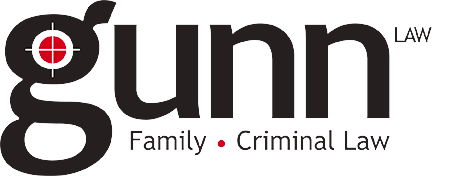The changes the federal government made on December 18, 2018 are arguably the most radical changes since 1969, when breath-testing for alcohol on a large scale became possible and the offence of “over 80” made its debut in the Criminal Code.
For the first time, police can require a motorist, under pain of prosecution, to provide a sample of breath into a screening device without having any reason to believe the person is under the influence of alcohol or even suspect the person has consumed alcohol. The request can be purely random.
Police already had the ability to stop any motor vehicle at will – all the police have to say is that the stop is to check for documents or the driver’s sobriety. Coupled with this new ability to require motorists to provide a sample of breath into a screening device in the absence of a reasonable suspicion that the motorist has alcohol in his or her body, the powers of the police have reached an unprecedented summit, as has the challenge to the constitutional rights of all motorists.
It is not difficult to imagine situations where this new era of unfettered police power could result in abuse. Who will be asked to provide a sample just because the officer feels like requesting it? Will certain groups be targeted? As the police do not need to justify their request, it also leaves them vulnerable to allegations of targeting, even if that is not what the police are doing.
And what of those feisty motorists who insist that, before providing a bodily sample into the device for alcohol analysis, they want to speak to their lawyer first? As the law currently stands, those people will almost certainly be charged with refusal if they insist on their constitutional right to obtain legal advice. That is particularly concerning as the fine for refusal is twice that of the lowest fine one can get for driving with a blood alcohol level at or over the legal limit.
Since 1969, a blood alcohol level over 80 milligrams of alcohol in 100 milliliters of blood (80 mg%) has been the legal limit for a blood alcohol content while driving. Above that limit, a motorist would be charged with driving with a blood alcohol level over the legal limit.
On December 18, 2018, the government lowered the legal limit to “at or over 80 mg%”. While “at or over 80” as opposed to ”over 80” may appear to be a negligible difference, it is much more significant than many would appreciate. Breath-testing readings are reported in increments of 10 mg%. When the offence was “over 80 mg%”, people who blew between 80 and 89 (if the last digit was visible and not truncated) were never charged.
In fact, because the inherent tolerance of the instruments is roughly 10 mg% (although some argue it is 10%), people who blew between 90 and 99, for many years, were not charged with driving over 80 since it was argued that a reading of 90 could mean that the person’s blood alcohol level was anywhere between 80 and 100. The offence was, after all, driving with a blood alcohol level over the legal limit.
Now, a new group of people, never previously charged in the past, are vulnerable to prosecution. Yet, the breath-testing results on these instruments are known to sometimes over-estimate, or sometimes under-estimate, actual blood alcohol content since it is converting breath readings to blood alcohol readings based on the profile of a healthy, “average” person (if such an entity even exists).
With all these changes, it is also curious why Parliament maintained the level of 80 mg% at all. Scientific studies show that the point at which all drivers, regardless of tolerance levels, are impaired is 100 mg%. Those below that limit, may or may not be impaired in their ability to drive; that means that some individuals will be charged when they do not pose a danger to the public.
Shannon Gunn Emery
Lawyer with Gunn Law Group
Consult a Gunn Lawyer to Explore Your Legal Options
Contact Gunn Law Group today to discuss your legal needs and explore your options. Our team of experienced lawyers is here to provide you with the guidance and representation you require.
Call Us at (780) 488-4460
Your future deserves the dedication of Gunn Law Group. Let us help you navigate through whatever legal challenges you are facing.
